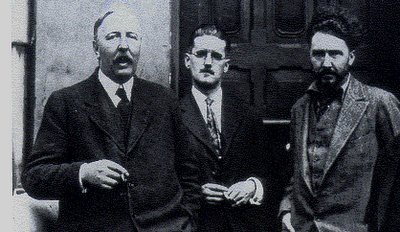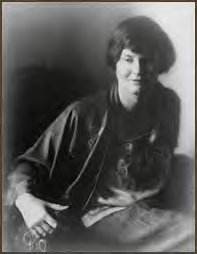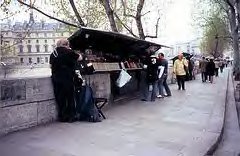
Aux premieres loges I
Ernest Hemingway in Paris in the 1920s. An expatriate learning to be an author while living with other members of the "lost generation."
 Sherwood Anderson was one of the most influential people in Hemingway's early years as a writer, before he left for Paris.
Sherwood Anderson was one of the most influential people in Hemingway's early years as a writer, before he left for Paris. Ford Madox Ford, James Joyce, and Ezra Pound in Paris.
Ford Madox Ford, James Joyce, and Ezra Pound in Paris.






 Hemingway, 1928, in a photo taken by Helen Breaker. This was one of a group of publicity photos that his publisher - Scribners - wanted taken. According to Dorothy Parker, women who saw these pictures turned "all of a quiver," and she worried that their publication drew too much attention away from Hemingway's virtues as a writer.
Hemingway, 1928, in a photo taken by Helen Breaker. This was one of a group of publicity photos that his publisher - Scribners - wanted taken. According to Dorothy Parker, women who saw these pictures turned "all of a quiver," and she worried that their publication drew too much attention away from Hemingway's virtues as a writer.



 Hadley Richardson in 1928. Married for less than 6 years to Hemingway, she was 8 years older than he and had a yearly income of approximately $3,000 from a trust fund. It was a comfortable income considering the lifestyle of poverty they lived in Paris.
Hadley Richardson in 1928. Married for less than 6 years to Hemingway, she was 8 years older than he and had a yearly income of approximately $3,000 from a trust fund. It was a comfortable income considering the lifestyle of poverty they lived in Paris.



